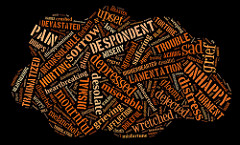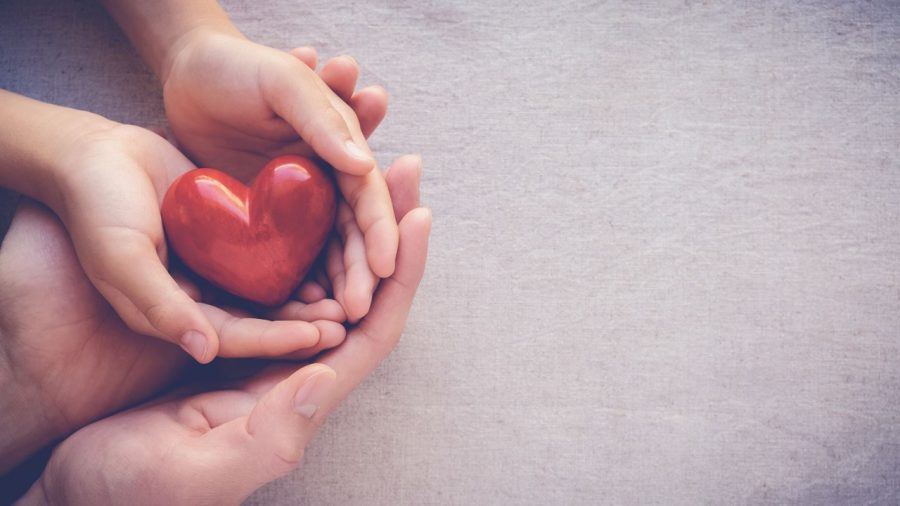In the northern hemisphere, daylight hours are shortened in winter, generally, from last September to March. This means that we get less exposure to sunlight. Sunlight gives us positive mental wellness. It’s warm mentally and physically, as well as being essential to our health. I want to share some of my mental wellness strategies for the coming winter months. Some of these strategies are an adaptation from others, and some are ones I adopted through practising.
But, first on the importance of mental wellness, specifically in the coming months. Mental wellness is as essential as physical wellness. After all, a healthy body equals a healthy mind. Most of us take regular exercises to improve our physical health, whether through walking, cardio-vascular exercises or fitness classes. I regularly take long walks, practise kickboxing and MMA at least four times a week. If we can look at ways to apply the same strategy to our mental health, we are on the way to improving our overall wellbeing.
However, with the upcoming weather changes and shorter daylight hours, we can be affected by the seasonal changes. Seasonal affective disorders (or SAD) are prevalent. Changes in our external environment will invariably affect change in our inner world. I certainly have noticed the fast-approaching dark nights and the lacking of energy.
What are mental health and mental wellness?
 Mental health concerns the health of our mind, psyche and mental construct. This includes our thoughts, our thinking style and our mental model of the world. The mind never sleeps because it works to ensure that our internal organs are functioning at all times. It operates on a cycle that recurs every twenty-four hours, and it is better known as the circadian rhythm. Within the circadian rhythm, various internal organs become active in alignment with the meridian circuit at their peak time. Positive mental health and wellness is a balance of the body-mind in one wholistic system working together. Adverse mental health and illness is an imbalance of the body-mind system causing misalignments.
Mental health concerns the health of our mind, psyche and mental construct. This includes our thoughts, our thinking style and our mental model of the world. The mind never sleeps because it works to ensure that our internal organs are functioning at all times. It operates on a cycle that recurs every twenty-four hours, and it is better known as the circadian rhythm. Within the circadian rhythm, various internal organs become active in alignment with the meridian circuit at their peak time. Positive mental health and wellness is a balance of the body-mind in one wholistic system working together. Adverse mental health and illness is an imbalance of the body-mind system causing misalignments.
Why do most of us struggle with our mental health in the winter more so than in the spring or summer months?
Many factors can negatively affect our mental health. Most of us will struggle with daily challenges such as worrying about our finances, job insecurities, time-pressured job-related responsibilities, family worries, relationship concerns etc. But, changes in the weather can also be a factor that lower moods and dampen the spirit.
Most of us may struggle with our mental health in the winter months mainly because of environmental changes, but other influences can be. The fluctuation in the atmospheric pressure can lead to lethargy, tiredness and fatigue. The quickening dark nights do limit our time in daylight. The shorter days come with limitations and the desire to hibernate. Our desire to get out of bed when it is still dark can diminished. And we lack the will to do energy. We grapple with staying positive, and our mental health can slide into low moods.
The good news is that we can do something about this, and we are all capable of taking steps to help improve our mental wellbeing during the winter months. The benefits of positive mental health are essential for our overall wellbeing. Here are some helpful strategies to get you through the upcoming months.
Surround yourself with natural (day)light bulbs or lamps
 You can buy daylight bulbs or lamps in any lighting shop or online. The benefits of daylight bulbs help increase our exposure to natural daylight. It helps to improve our moods and mental awareness. It also helps to reduce Seasonal Affective Disorder (SAD). Try it for yourself.
You can buy daylight bulbs or lamps in any lighting shop or online. The benefits of daylight bulbs help increase our exposure to natural daylight. It helps to improve our moods and mental awareness. It also helps to reduce Seasonal Affective Disorder (SAD). Try it for yourself.
Surround yourself with psychic protection
Be in a meditative state. Visualise yourself surrounded by a transparent white light that encased your entire body. Within the protective bubble, feel the warmth of white light energy recharging your spiritual and physical body.
Ensure that you are well-nourished
 For a healthy body-mind, we need to take care of the physical body as this helps maintain a healthy mind. Eating a regular, colourful and balanced diet is essential for positive physical health.
For a healthy body-mind, we need to take care of the physical body as this helps maintain a healthy mind. Eating a regular, colourful and balanced diet is essential for positive physical health.
Wellness is about balanced in all aspects of beingness. Eating in moderation. Drinking in moderation. Exercise in moderation etc.
Incorporate meditation into your day
Make time for meditation, set yourself the time and space to be with your inner world. This means sitting still, preferably in a quiet and peaceful place, outside if possible. Go inside yourself. Be with your thoughts and allow your mind to wander, and just observe whatever you’re thinking. And notice the different things that your might be thinking about. And see who is observing the thoughts.
Practice mindfulness
Practice being mindful. Mindfulness is a conscious awareness of our thoughts and the mind. It is about making our automatic thoughts and the thing we think about conscious. If you tend to ruminate over a situation, being mindful helps you to notice the recurring thoughts. Then, you can ask yourself why you keep thinking about those thoughts. You should begin to see a pattern of repetitive thoughts or recurring thinking. I often find myself repeatedly thinking about wrongdoers. The individuals who have caused me aggrieved.
Mindfulness is simply being conscious about your present state of being and notice what you are consciously doing, thinking and feeling at that instance. It is about acknowledging what is and accepting the presentness of those sensations.
Nurture your spiritual Self
 Naturally, as we take care of our physical body, we also need to consider our Spiritual Self too. Nurturing our spiritual Self include adopting rituals and practices that align with our beliefs, including religious and cultural traditions. Nurturing your soul also include transparency, honesty and being truthful to yourself. This means confessing and admitting your mistakes and take ownership of your responsibilities. Acknowledge your wrongdoings and let go of the false pride. Inevitably, you can find forgiveness for yourself and for others.
Naturally, as we take care of our physical body, we also need to consider our Spiritual Self too. Nurturing our spiritual Self include adopting rituals and practices that align with our beliefs, including religious and cultural traditions. Nurturing your soul also include transparency, honesty and being truthful to yourself. This means confessing and admitting your mistakes and take ownership of your responsibilities. Acknowledge your wrongdoings and let go of the false pride. Inevitably, you can find forgiveness for yourself and for others.
Keeping warm
When the temperature drops below our ideal condition, we can be affected energetically. If it’s cold outside, we naturally strive to keep warm. If it’s warm outside, we will adhere to stay cool. Keeping warm physically by insulating our body. Keep warm mentally by ensuring that you wear warm colours, warm food such as chillies or jalapenos peppers, and drink warming beverages. Light a candle – do not underestimate the warmth of a single candle.
“Happiness cannot be persued, it must be ensue.” – Viktor E. Frankl.
Do you find this blog helpful? If you like this post, I love to hear from you on my Twitter Page.



 The people closest to you mean individuals nearest to you, as this may not be your immediate family. The people we choose to have around us impact our being. You might have lots of family members but may not live close to them. You might live closer to friends and work colleagues. The people around us influence our lives. Begin by appreciating those around you, that includes your neighbours and the community in which you live. After all, a part of you knows why you have chosen to live where you are. Start appreciating those people that are closest to you.
The people closest to you mean individuals nearest to you, as this may not be your immediate family. The people we choose to have around us impact our being. You might have lots of family members but may not live close to them. You might live closer to friends and work colleagues. The people around us influence our lives. Begin by appreciating those around you, that includes your neighbours and the community in which you live. After all, a part of you knows why you have chosen to live where you are. Start appreciating those people that are closest to you. Appreciate the outdoor and nature. Enjoy the freshness and colourful nature of the natural world and be one with nature.
Appreciate the outdoor and nature. Enjoy the freshness and colourful nature of the natural world and be one with nature.  Fake it until you make it. It might seem like an effort and difficult to foster a smile. But, it is effortless. Curl your lips together and grin. Turn that frown upside down! Smiling and positioning our mouth into the smile helps to improve our moods as the body is ‘tricked’ into releasing cortisol and endorphins. We all know all the many benefits of these two magical chemicals in the body. But, did you know that it is also catching?
Fake it until you make it. It might seem like an effort and difficult to foster a smile. But, it is effortless. Curl your lips together and grin. Turn that frown upside down! Smiling and positioning our mouth into the smile helps to improve our moods as the body is ‘tricked’ into releasing cortisol and endorphins. We all know all the many benefits of these two magical chemicals in the body. But, did you know that it is also catching?
 Generally, feelings are my friend, and I have made acquaintances with almost all of my emotions. I had come to accept feelings and emotions as a part of my experiences to be felt. I had embraced and incorporated feelings and emotions within my being. I have also allowed myself to mindfully and consciously express the feeling felt. I had even released inherited, trapped and preconception emotions, as well as unblocking heart-wall emotions. I had healed compound and post-traumatic emotional reverberation too. But, as an empath, I had learned the hard way how my feelings can still affect me, and most importantly, how other people’s emotions also impacted me. I had occasionally absorbed other people’s emotional resonances, and I had allowed that to affect me.
Generally, feelings are my friend, and I have made acquaintances with almost all of my emotions. I had come to accept feelings and emotions as a part of my experiences to be felt. I had embraced and incorporated feelings and emotions within my being. I have also allowed myself to mindfully and consciously express the feeling felt. I had even released inherited, trapped and preconception emotions, as well as unblocking heart-wall emotions. I had healed compound and post-traumatic emotional reverberation too. But, as an empath, I had learned the hard way how my feelings can still affect me, and most importantly, how other people’s emotions also impacted me. I had occasionally absorbed other people’s emotional resonances, and I had allowed that to affect me. Feeling unsafe and insecure are intrapsychic emotions. They are the core woundings from a less than ideal early environment in childhood. But, we do not have to let the past define the present or the future. These feelings often stemmed from inconsistency, chaotic and dismissive attachment patterns from our caregivers. But, they are not to blame because they too were the victim of their core woundings.
Feeling unsafe and insecure are intrapsychic emotions. They are the core woundings from a less than ideal early environment in childhood. But, we do not have to let the past define the present or the future. These feelings often stemmed from inconsistency, chaotic and dismissive attachment patterns from our caregivers. But, they are not to blame because they too were the victim of their core woundings. Feeling insecure, succeed feeling unsafe. When feeling insecure, a child feels awkward and inadequate in their abilities, skills and resources. The child lacks confidence, have doubts and distrusts themself, others and the world. Thus, the child will grow up to seek validation from the exterior world, thinking it would soothe their inner sanctum. When we are insecure about ourselves, we compensate for the lacking by constantly looking for ways to feel safe and secure. We also compensate by avoiding situations or people, and we may become controlling, adopting perfectionistic traits, or have obsessive-compulsive behaviours. We will often look for what is missing within outside of ourselves. We do this by collecting (material) things, including having people around us that makes us feel good. Unfortunately, we will not fully soothe that void looking externally when our intrapsychic world is unsafe.
Feeling insecure, succeed feeling unsafe. When feeling insecure, a child feels awkward and inadequate in their abilities, skills and resources. The child lacks confidence, have doubts and distrusts themself, others and the world. Thus, the child will grow up to seek validation from the exterior world, thinking it would soothe their inner sanctum. When we are insecure about ourselves, we compensate for the lacking by constantly looking for ways to feel safe and secure. We also compensate by avoiding situations or people, and we may become controlling, adopting perfectionistic traits, or have obsessive-compulsive behaviours. We will often look for what is missing within outside of ourselves. We do this by collecting (material) things, including having people around us that makes us feel good. Unfortunately, we will not fully soothe that void looking externally when our intrapsychic world is unsafe. Always put yourself first, you matter the most! This is not a selfish thought, but rather a self-care process. You have to look after number one (YOU). You have to move past caring for others first. Undoubtedly, we were conditioned to be considered, to be nice, to be kind to others. We were told to think of others, to be helpful and to be thoughtful of others. We were taught to believe that it matters what others think about us. But, in so doing, we neglected our own needs and care. I certainly thought that if I was helpful, nice and kind, somehow, I would feel safe in being altruistic.
Always put yourself first, you matter the most! This is not a selfish thought, but rather a self-care process. You have to look after number one (YOU). You have to move past caring for others first. Undoubtedly, we were conditioned to be considered, to be nice, to be kind to others. We were told to think of others, to be helpful and to be thoughtful of others. We were taught to believe that it matters what others think about us. But, in so doing, we neglected our own needs and care. I certainly thought that if I was helpful, nice and kind, somehow, I would feel safe in being altruistic. When our external world is unsafe, we introspect and come to believe that our inner world is too. As we continue to think this way, we start to look for ways to feel safe and be safe. We tend to see threats when there are none. We make excuses for people, things and situations to minimise the threat, which may be imaginary. We may make excuses to change our behaviours and our mindsets because we are complacent in the familiar. This can keep us stuck in hypervigilant behaviours.
When our external world is unsafe, we introspect and come to believe that our inner world is too. As we continue to think this way, we start to look for ways to feel safe and be safe. We tend to see threats when there are none. We make excuses for people, things and situations to minimise the threat, which may be imaginary. We may make excuses to change our behaviours and our mindsets because we are complacent in the familiar. This can keep us stuck in hypervigilant behaviours. What we think, we will manifest because it was impressed in the mind. If you think that you are not safe, lacking in confidence or not worthy you are essentially broadcasting this unconsciously. We don’t consciously mean to send out these unconscious perceptions but we do, and we project it.
What we think, we will manifest because it was impressed in the mind. If you think that you are not safe, lacking in confidence or not worthy you are essentially broadcasting this unconsciously. We don’t consciously mean to send out these unconscious perceptions but we do, and we project it. When we feel unsafe, threatened or insecure it is often because the love is not there. Our feelings begin internally as a result of an external stimulus that we introject, but we could also be absorbing other’s people energy and emotion, unconsciously. We can protect ourselves and keep safe by reminding ourselves that we are loved. We are loved by God. We are loved by the Higher Power. We are loved and we can draw power from the universe to recharge our battery, just as we recharge our body through grounding.
When we feel unsafe, threatened or insecure it is often because the love is not there. Our feelings begin internally as a result of an external stimulus that we introject, but we could also be absorbing other’s people energy and emotion, unconsciously. We can protect ourselves and keep safe by reminding ourselves that we are loved. We are loved by God. We are loved by the Higher Power. We are loved and we can draw power from the universe to recharge our battery, just as we recharge our body through grounding.

 Our physical body is made up of energy. Our emotions are energy. Everything is energy, and energy is everywhere. Emotions have energy. Our thoughts, whether it is conscious or unconscious, have an energy signature.
Our physical body is made up of energy. Our emotions are energy. Everything is energy, and energy is everywhere. Emotions have energy. Our thoughts, whether it is conscious or unconscious, have an energy signature.  However, energy can be explained by science. Energy is generated when there is an exertion of power or force, according to physicists. The quantitative law determines the exchanges of dynamic force in a reaction to cause and effect.
However, energy can be explained by science. Energy is generated when there is an exertion of power or force, according to physicists. The quantitative law determines the exchanges of dynamic force in a reaction to cause and effect. So, with summers coming, I want to share some of the ways you can protect your energy that has proven useful to me.
So, with summers coming, I want to share some of the ways you can protect your energy that has proven useful to me. It might be helpful if you can incorporate an energy cleansing activity into your daily ritual. You will find it easier to do and you won’t need to think of it as a chore if you build the activity in your life. You can begin to see subtle differences over time, or you might see a dramatic difference rightaway if your energy is stagnant.
It might be helpful if you can incorporate an energy cleansing activity into your daily ritual. You will find it easier to do and you won’t need to think of it as a chore if you build the activity in your life. You can begin to see subtle differences over time, or you might see a dramatic difference rightaway if your energy is stagnant.
 Acceptance is a concept of belief that recognises the validity of a thing or situation as it is. It is a conscious act with a positive intention for open-mindedness. It is to perceive something or a problem with a realistic view without judgement, assumption or supposition. In Psychology, acceptance is a catharsis, and it is a process of healing our cognition and emotion. But, if we can extend acceptance to all aspect of our lives and ourselves, we can come to a place of peace.
Acceptance is a concept of belief that recognises the validity of a thing or situation as it is. It is a conscious act with a positive intention for open-mindedness. It is to perceive something or a problem with a realistic view without judgement, assumption or supposition. In Psychology, acceptance is a catharsis, and it is a process of healing our cognition and emotion. But, if we can extend acceptance to all aspect of our lives and ourselves, we can come to a place of peace. To be able to accept what is, here are a few tips that I have tried and tested. They are the tools and strategies that work for me over the years in training and practising as a therapist. They may seem like common sense, but sometimes the simplest things are most effective.
To be able to accept what is, here are a few tips that I have tried and tested. They are the tools and strategies that work for me over the years in training and practising as a therapist. They may seem like common sense, but sometimes the simplest things are most effective. Accepting what is is a personal challenge that I sometimes struggle with because mistakes happen in the reality of a situation, especially in a relationship. It is an ongoing process, and one should not place emphasis on achieving and then forgetting it. It is not about ticking the box, and you are done with it. But, the more you practice and adopt this way of being, the more familiar you will become with accepting things, situation, people, life and yourself.
Accepting what is is a personal challenge that I sometimes struggle with because mistakes happen in the reality of a situation, especially in a relationship. It is an ongoing process, and one should not place emphasis on achieving and then forgetting it. It is not about ticking the box, and you are done with it. But, the more you practice and adopt this way of being, the more familiar you will become with accepting things, situation, people, life and yourself. Mental health has been a challenge that has recently spiked on the global scale since the pandemic. It has long been a part of Western societies since the birth of psychiatry, and possibly longer than that. Mental disturbances are a challenge that poses psychological and physical discomfort in the individual. Mental disturbances can range from worrying about your loved ones to concern for their safety and welfare. It is any disturbances that are constructed in the mind. The longer we are exposed to these disturbances, the more problem it poses on our mental health. Thus, our mental wellness depends on the way we think and how we construct our inner world.
Mental health has been a challenge that has recently spiked on the global scale since the pandemic. It has long been a part of Western societies since the birth of psychiatry, and possibly longer than that. Mental disturbances are a challenge that poses psychological and physical discomfort in the individual. Mental disturbances can range from worrying about your loved ones to concern for their safety and welfare. It is any disturbances that are constructed in the mind. The longer we are exposed to these disturbances, the more problem it poses on our mental health. Thus, our mental wellness depends on the way we think and how we construct our inner world. Mental health awareness is the ability to develop compassion for ourselves and our mental construct as well as the mental capability of another. It is also about treating ourselves and others the way we would like to be treated. It is about watching our thoughts and thinking well of ourselves and others. Having an awareness of our thought processes give us realisation. In the realisation, we become compassionate with ourselves and how our mind works things out.
Mental health awareness is the ability to develop compassion for ourselves and our mental construct as well as the mental capability of another. It is also about treating ourselves and others the way we would like to be treated. It is about watching our thoughts and thinking well of ourselves and others. Having an awareness of our thought processes give us realisation. In the realisation, we become compassionate with ourselves and how our mind works things out. You are more than your mind. Therefore, you are more than the way you think and what you think. Thinking is just what you happen to do because the brain does not shut up. Thoughts will always intrude on the psyche. But, thought forms, and then they disappear. When you give focus, attention and meaning to the ideas, your thinking and other thought-forms arise to become problematic. It is at this point that having a
You are more than your mind. Therefore, you are more than the way you think and what you think. Thinking is just what you happen to do because the brain does not shut up. Thoughts will always intrude on the psyche. But, thought forms, and then they disappear. When you give focus, attention and meaning to the ideas, your thinking and other thought-forms arise to become problematic. It is at this point that having a 
 A stressful situation for one person will inevitably be different. People are divergent and will have a different way to view or manage problems. From our lived experiences, these individuals can often draw upon their internal resources to cope with stress. However, it does not mean that you can’t learn to build your inner strength.
A stressful situation for one person will inevitably be different. People are divergent and will have a different way to view or manage problems. From our lived experiences, these individuals can often draw upon their internal resources to cope with stress. However, it does not mean that you can’t learn to build your inner strength. Knowing what you think about will help you make sense of your inner voice. Listening to what you say and how you talk to yourself in a stressful situation will help you become in control of the situation, rather than allowing the problem to control you. We are often overly critical of ourselves. We can be the harshest critique. But, if we can be compassionate and kinder to ourselves, we can be free of the thoughts and let them go easier.
Knowing what you think about will help you make sense of your inner voice. Listening to what you say and how you talk to yourself in a stressful situation will help you become in control of the situation, rather than allowing the problem to control you. We are often overly critical of ourselves. We can be the harshest critique. But, if we can be compassionate and kinder to ourselves, we can be free of the thoughts and let them go easier. Now, try learning to speak to yourself differently. If you used to shout at yourself internally, why not try speaking softly this time. Hopefully, you will notice that the impact is dramatically reduced. You may start to notice an alternate feeling associated with the gentle inner voice. You also may hear yourself speaking using contrasting words, kinder and loving expression. The change begins with small and enlarges, like a ripple.
Now, try learning to speak to yourself differently. If you used to shout at yourself internally, why not try speaking softly this time. Hopefully, you will notice that the impact is dramatically reduced. You may start to notice an alternate feeling associated with the gentle inner voice. You also may hear yourself speaking using contrasting words, kinder and loving expression. The change begins with small and enlarges, like a ripple.
 Sleep is
Sleep is  During the nocturnal hours, your body’s naturally crave sleep because your internal biological clock or the circadian rhythm is synchronised with the day/night cycle of the diurnal rhythm. The
During the nocturnal hours, your body’s naturally crave sleep because your internal biological clock or the circadian rhythm is synchronised with the day/night cycle of the diurnal rhythm. The  Have a goal in mind for your bedtime (sleep time). This is a time that you want to be in bed, lights out, eyes shut and breathing easily.
Have a goal in mind for your bedtime (sleep time). This is a time that you want to be in bed, lights out, eyes shut and breathing easily. I firmly believe that rituals are helpful. Have a bedtime routine and pattern that you stick to help you build a structure around your sleeping habit. I cannot stress the importance of sticking to your routines and think positively about enjoying the mundane.
I firmly believe that rituals are helpful. Have a bedtime routine and pattern that you stick to help you build a structure around your sleeping habit. I cannot stress the importance of sticking to your routines and think positively about enjoying the mundane. I give myself around 10-15 minutes for relaxation. In that time, I may mediate or listen to soothing, relaxing music to ease myself to sleep. You might find my
I give myself around 10-15 minutes for relaxation. In that time, I may mediate or listen to soothing, relaxing music to ease myself to sleep. You might find my  By 23.00, lights out for me, regardless of whether my husband or I am ready. I turned off the light.
By 23.00, lights out for me, regardless of whether my husband or I am ready. I turned off the light.
 The mind never sleeps. The conscious mind is continually evaluating the input from our senses. The unconscious mind never shut off because it automates body regulatory, circuitry systems, such as keeping a steady sinus rhythm. Meditation is a state of being still in the body so that you can go within the psyche to observe thoughts, listen to what you are thinking about and notice comes up for you when cognitively being aware of what is in your mind. What you think you will manifest. Be sure to think only positive thoughts.
The mind never sleeps. The conscious mind is continually evaluating the input from our senses. The unconscious mind never shut off because it automates body regulatory, circuitry systems, such as keeping a steady sinus rhythm. Meditation is a state of being still in the body so that you can go within the psyche to observe thoughts, listen to what you are thinking about and notice comes up for you when cognitively being aware of what is in your mind. What you think you will manifest. Be sure to think only positive thoughts. A loving act for me includes feeling joyful, having fun and laughing at myself, lovingly. It is ultimately a knowing that you embrace with heart and soul. It is enough to say things like; I love my hair today, I love how I handle that argument today, I love the way I spoke my truth, even though not everyone agreed. It is quite alright to say; I love my voice, I love my flaws, etc. Whatever you dislike about yourself, try to reverberate your thoughts by expressing and vocalising your love, out loud.
A loving act for me includes feeling joyful, having fun and laughing at myself, lovingly. It is ultimately a knowing that you embrace with heart and soul. It is enough to say things like; I love my hair today, I love how I handle that argument today, I love the way I spoke my truth, even though not everyone agreed. It is quite alright to say; I love my voice, I love my flaws, etc. Whatever you dislike about yourself, try to reverberate your thoughts by expressing and vocalising your love, out loud.
 As a psycho-spiritual therapist, I believe that the physical body has two ‘minds’; the cognitive-mind and the heart-mind. Therein, the brain is the cognitive-mind, and the heart is the heart-mind. It might help if you think of the brain as the all-knowing ‘supercomputer’. Memories, experiences, and programmings are stored. Thus, the heart is the ‘operator’, the user, the decision-maker. Imagine making your decisions from the heart. Henceforth, I want to discuss the concept of heart-mind further because I believe that this is the primary and the brain is secondary.
As a psycho-spiritual therapist, I believe that the physical body has two ‘minds’; the cognitive-mind and the heart-mind. Therein, the brain is the cognitive-mind, and the heart is the heart-mind. It might help if you think of the brain as the all-knowing ‘supercomputer’. Memories, experiences, and programmings are stored. Thus, the heart is the ‘operator’, the user, the decision-maker. Imagine making your decisions from the heart. Henceforth, I want to discuss the concept of heart-mind further because I believe that this is the primary and the brain is secondary. If you use your mind to think about making a decision, it is safe to say that you are not as connected to your heart-mind. If you take time to ponder a decision or find it difficult to make up your mind, you are probably mind-identified. Decision-making from the heart-mind often comes from a ‘feeling’ or an intuition. The heart is our source of love, creativity and inspiration. Sometimes, decisions from the heart are illogical, baseless, spontaneous and impulsive.
If you use your mind to think about making a decision, it is safe to say that you are not as connected to your heart-mind. If you take time to ponder a decision or find it difficult to make up your mind, you are probably mind-identified. Decision-making from the heart-mind often comes from a ‘feeling’ or an intuition. The heart is our source of love, creativity and inspiration. Sometimes, decisions from the heart are illogical, baseless, spontaneous and impulsive. Place your hand on your heart and literally listens to the harmonious, rhythmic heart beating. It should beat in a gentle rhythm, the soft sounds of the tempo should be melodic and not like an offbeat syncopation. Listen to your gentle, beating heart and notice your senses. Do you feel any tingling, flood of warmth or goosebumps? These are the sensation of energy moving through your body, surging and filling you with good feelings. A loving feeling has the highest frequency, as mentioned in last month’s
Place your hand on your heart and literally listens to the harmonious, rhythmic heart beating. It should beat in a gentle rhythm, the soft sounds of the tempo should be melodic and not like an offbeat syncopation. Listen to your gentle, beating heart and notice your senses. Do you feel any tingling, flood of warmth or goosebumps? These are the sensation of energy moving through your body, surging and filling you with good feelings. A loving feeling has the highest frequency, as mentioned in last month’s  When you speak to others, notice your language, the word you use and in what context. If you can relate to others from an adult to adult, not from an adult to a child or a parent, you are halfway to using the I/thou language. This concept simply means speaking to someone compassionately while taking responsibility for your feeling, words, and language. Here is an example of an I/though language:
When you speak to others, notice your language, the word you use and in what context. If you can relate to others from an adult to adult, not from an adult to a child or a parent, you are halfway to using the I/thou language. This concept simply means speaking to someone compassionately while taking responsibility for your feeling, words, and language. Here is an example of an I/though language: